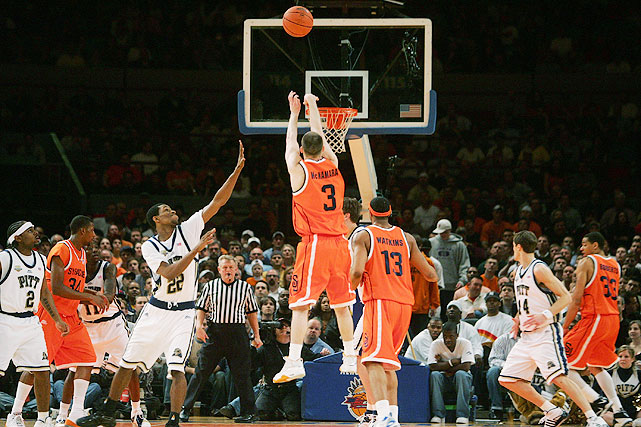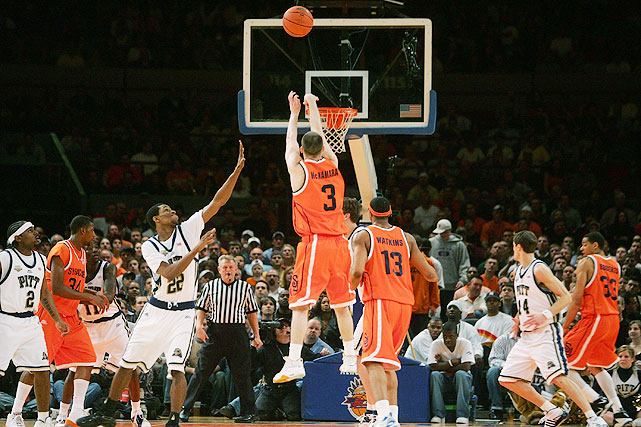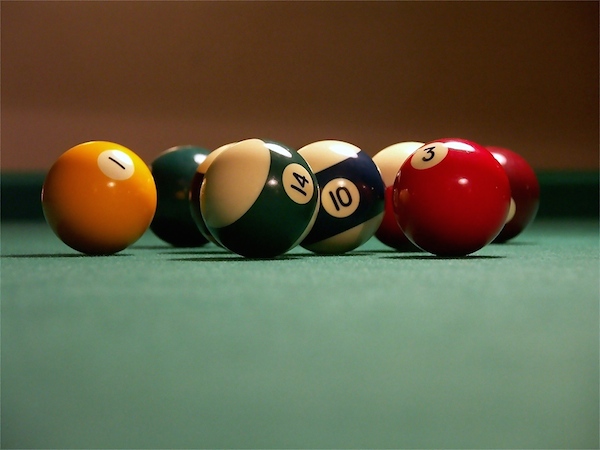This Wednesday, March 12, the Big East Men’s College Basketball Tournament starts at Madison Square Garden in New York City as it has every year since 1983. This year though, the tournament is different enough that it has many sports fans asking the question, “is this the same tournament?” Similar questions about the consistency of existence have been asked throughout history in the form of a paradox called the Theseus Paradox.

The Theseus Paradox, first posed by Plutarch in his first century Life of Theseus, asks whether Theseus’ ship, having been preserved by replacing one by one, every single board, is truly the same ship? This question is also commonly asked about “my grandfather’s ax”: This is my grandfather’s ax. My father replaced the head and I replaced the shaft. (As an aside, this is one of the many quotations on my father’s classroom wall. I guess the tree doesn’t grow far from where the apple falls…) The question the paradox asks is about the nature of existence — in the case of a sports conference, what makes the Big East the Big East? Is it the conference name, the location of its tournament, or the teams that play in it?
The Big East was formed in 1980 as a collection of schools, many Catholic, mostly in the Northeast of the country, whose priority when it came to sports was basketball. It quickly became a powerhouse college basketball conference in part because of its television contract with an up and coming network called ESPN. For almost two decades, it drove college basketball and was driven by college basketball but then the rise of college football as the big money-maker for college athletics caught up to it. From the mid-1990s the economics of college sports forced the Big East to start making moves to improve its standing in College Football even at the expense of its basketball history. It added schools like Miami, West Virginia, and Virginia Tech which were not only far from being in the Northeast but were also primarily football schools. This emphasis on football mixed with the Big East’s tendency to be stronger in basketball than football despite its best attempt to conform eventually led, starting in 2004, to the slow but steady flight of football-strong schools from the conference. One of my favorite sports writers, Michael Wilbon, wrote a good article about this in 2011. The conflict came to a head last year when seven of the original members of the Big East (all Catholic and all primarily basketball schools) petitioned the league to break away from the remaining schools and form their own league. They succeeded in seceding and because they represented a majority of the remaining charter members, were able to take the Big East name with them.
This year’s Big East consists of those seven teams plus three more they poached from other leagues. It’s this league that will be having their postseason tournament in Madison Square Garden this week but its unclear how much the new tournament will “feel” like the old one. It will be missing most of its biggest teams and rivalries. Syracuse, UConn, Louisville, and Pitt are gone and with them seventeen of the thirty four Big East historic championship teams. The last remaining historic powerhouse, Georgetown, is robbed of its main rivals and having an unusually weak year. According to Forbes, ticket sales are down 11%. The New York Post argues that what the current tournament has “lost in star power” it has “made up in drama.”
Coming back to the metaphor of the ax, the parallel to the paradox is not complete. Seven of the ten schools in this iteration of the Big East were charter members of the original Big East. So, while the head of the ax may have been changed, at least the shaft is the same piece of wood. Philosopher Thomas Hobbes added a question to the paradox using the metaphor of a ship — what, he posed, if the original planks had been collected on their way out of the ship, and assembled back into another ship? Which would be the “real” ship? Luckily we don’t have to answer this question about basketball because the teams that have left the Big East have mostly scattered into other conferences.
What’s the answer? Is the Big East still the Big East? Perhaps there’s a clue to be found in (the all-knowing, all-powerful,) Wikipedia having two seperate entries for the Big East, one pre-2013, one post? Perhaps there is no answer? Perhaps the only way to know will be to tune in and watch the tournament…


